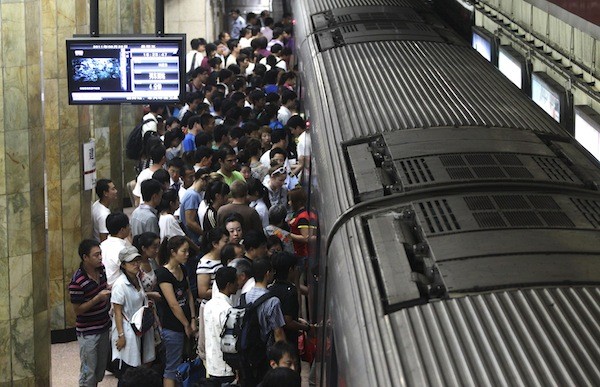China will expand its video security surveillance and counter-terror operations in public areas as well as set up a national population database linked to ID information and credit records to resist extremist attacks, the general offices of the Communist Party of China Central Committee and the State Council announced on Monday.
The government will assign law enforcers to strengthen security on public transportation areas and establishments such as buses, trains, subways, schools, airports, financial institutions and hospitals, especially during rush hours.
According to a report by Xinhua, real identity registration will be obligatory when booking in industries like hotels, second-hand good trades, motor refitting and unspecified "recreation services."
The expanded security measures are intended to establish a security network that protects all the members of the community as well as encourages the use of modern technology.
In the past years, the Chinese government has already established security measures against extremists, including the latest draft on anti-terrorism policy that would enable the government to have wider surveillance powers to protect national security, Reuters reported.
A document published by the Chinese government stated that effective security analysis and rule of law are also needed to build the network, as well as recruiting more community volunteers and giving rewards to citizens who will report serious crimes.
In July 2014, rebels from western region Xinjiang, which is home to a Muslim Uyghur community, launched knife and bomb attacks in public areas after Muslim civil servants were banned from fasting during the holy month of Ramadan.
The violence has caused disturbance and anxiety among the public.



























